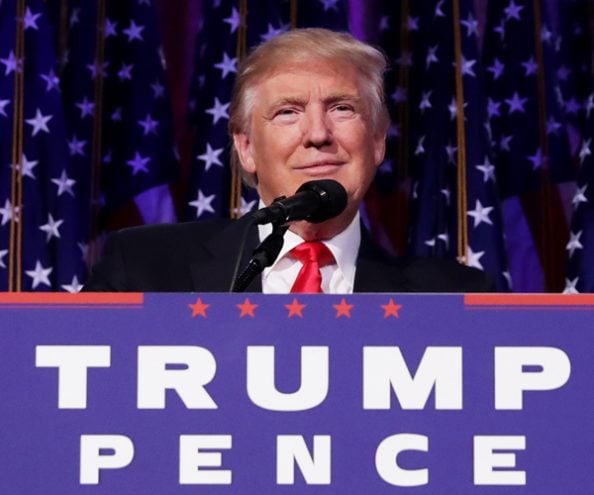The US President said the Supreme Court ruling was a “victory for our national security”.
It was indefinitely blocked back in March, but now US President Donald Trump’s controversial travel ban is back – in parts.
The US Supreme Court has reinstated elements of the executive order, which initially called for a 90-day US entry ban on nationals from six Muslim-majority countries.
The nations affected by the ban were Libya, Somalia, Sudan, Syria, Yemen, and Iran, while Trump’s order also called for a 120-day suspension on refugee admissions.
Read:
Everything You Need To Know About This Saudi Prince’s Promotion To The Kingdom’s Successor
Why Melania Trump Covered Her Head In Rome, And Not Saudi Arabia
The order was blocked by several federal judges after its announcement in January, however it’s now been partially reinstated by America’s highest court as a legal battle wages on.
The Supreme Court on Monday decided to uphold the executive order for nationals of the affected nations unless they have a genuine relationship with a person or body in the US.
“In practical terms, this means that [the executive order] may not be enforced against foreign nationals who have a credible claim of a bona fide relationship with a person or entity in the United States,” the White House said in a statement, the BBC reported.
“All other foreign nationals are subject to the provisions of [the executive order].”

The ruling also upholds the 120-day ban on refugee claimants who also do not have existing ties with a person or organisation in the States.
However, the Supreme Court decision isn’t permanent, with justices due to meet in October to decide whether the president’s policy should be upheld or struck down.
Regardless, Trump has heralded the decision ahead of October’s appeal hearing.
“Today’s unanimous Supreme Court decision is a clear victory for our national security,” he said in a White House statement released by the White House.
“Today’s ruling allows me to use an important tool for protecting our nation’s homeland.”
Read:
Ivanka Trump Lauds Saudi’s ‘Encouraging’ Progress In Female Empowerment
What Happened When Queen Rania Met First Lady Melania Trump
The wording of the Supreme Court ruling is likely to cause confusion amongst US immigration officials, with many pondering how a “bona fide relationship” will be judged.
“Today’s compromise will burden executive officials with the task of deciding – on peril of contempt – whether individuals from the six affected nations who wish to enter the United States have a sufficient connection to a person or entity in this country,” Justice Clarence Thomas said, according to Reuters.
According to the decision, those excluded from the ban would include people with family members in the US, those who have been accepted in American universities, or those who have been offered work with a US company.
“For example, a non-profit group devoted to immigration issues may not contact foreign nationals from the designated countries, add them to client lists, and then secure their entry by claiming injury from their exclusion,” the ruling stated.
Images: Getty











